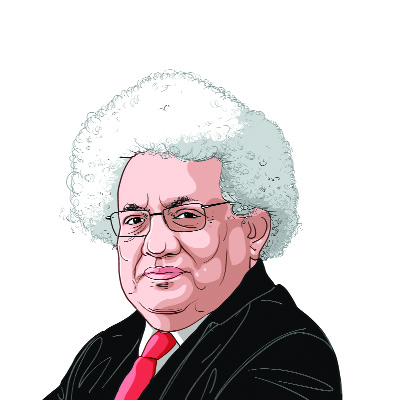Opinion The authoritarian democrat
Mrs Thatcher's demise has generated a flood of tributes and some painful memories.
Mrs Thatchers demise has generated a flood of tributes and some painful memories. Parallels have been made with Indira Gandhi,of whom she was apparently very fond. Both women as leaders had a transformative effect on their countries,but in very different ways. They are remembered very differently too.
Margaret Thatcher was loathed during her years as Education Minister in the 1970-1974 government as she restricted the supply of free milk to school childrenMargaret Thatcher Milk Snatcher was the slogan. She invited even more resentment when she became PM. She had her fanatical supporters who lauded her as the only man in the cabinet. But even within her own party the wets,as she labeled the consensus politicians,hated and feared her. She marginalised them and gave the Conservative Party a hard edge away from the One Nation Toryism of Harold Macmillan and Winston Churchill.
She dominated her Cabinet and implemented a radical economic programme which transformed the British economy and made it better equipped for the oncoming globalisation. She foresaw the collapse of the Socialist alternative in the USSR and Eastern Europe. She was a principal actor in the shift of the global thinking towards the markets. It was very painful for the British people but the pain had an ultimate gain.This is why she is remembered more fondly in retrospect than she was while prime minister.
Indira Gandhi was also a strong leader. She,however,broke democratic norms of behaviour which Margaret Thatcher never did. Thatcher won the arguments in her Cabinet and in the House of Commons. Indira Gandhi suspended the Constitution and jailed her opponents. She imposed Emergency purely because she felt personally insecure. Indira Gandhi did not change the economy; she entrenched the licence-permit raj deeper and began the practice of extorting money from industrialists,which continues to this day. About the only permanent effect she had was to make the Jan Sangh politically credible once its leaders had gone to jail during the Emergency. The BJP,as it is today,is her legacy to the nation. Mrs Thatcher forced the Labour Party to reform itself and emerge as New Labour which enabled Tony Blair to win three elections,just as she had done.
And yet,Indira Gandhi is repeatedly voted the best prime minister India had. The Emergency has been forgiven if not forgotten. It is her triumph in East Pakistan and the nuclear explosion which are remembered. There are airports named after her and schemes galore. Mrs Thatcher will have no government schemes named after her and barely a monument because the UK has deep roots to its democracy while India is still struggling to escape its feudal heritage.
But the appeal of a strong leader persists in India,a sort of Dabangg effect. Recent accounts of Sanjay Gandhi remind us how popular he was as he cut a swathe through poor Muslim and Hindu communities to force sterilisation. This is,after all,also the appeal of Narendra Modi though he has thus far not flouted any democratic norms (not suspended Assembly or put opponents in jail) whatever else he may be accused of. People crave for a Man on a White Horse (or even Black Buffalo) whatever Rahul Gandhi may say. Indeed Congress members dearly wish that Rahul Gandhi himself could,like his grandmother,be that Man on the White Horse but on current form I doubt he will oblige.
Of course the real quality of a strong leader in a democracy is to be able to convince people that whatever is being done is in their interests and for their benefit and not to assuage the personal ego of the leader or to calm her/his personal insecurity. Peoples consent has to be won to improve their lives even though pain may have to be inflicted in the short run. Mrs Thatcher had that quality. Despite recessions and high unemployment,she won peoples vote twice once she had been given power. She resigned from leadership when she failed to get a sufficient majority in a contest for leadership. How long before any prime minister in India is unseated by his or her party colleagues?


